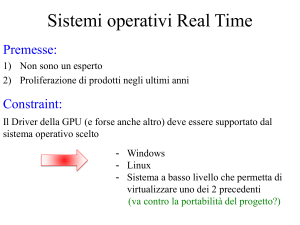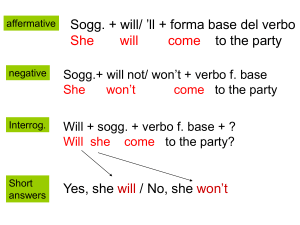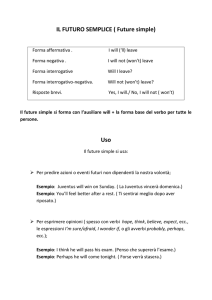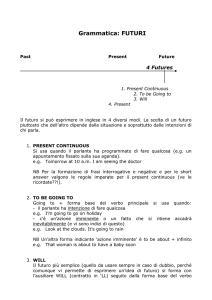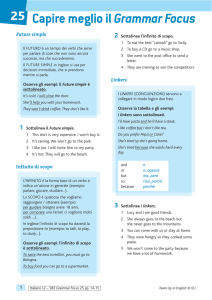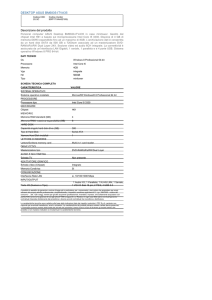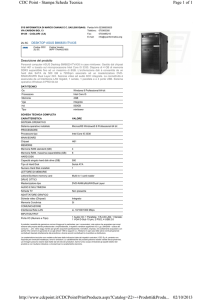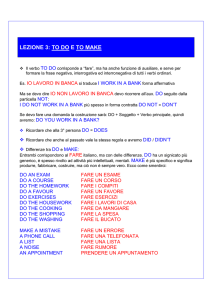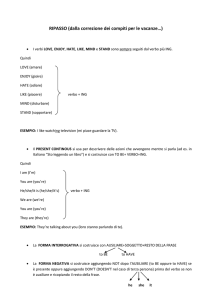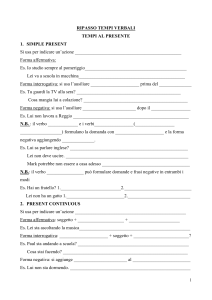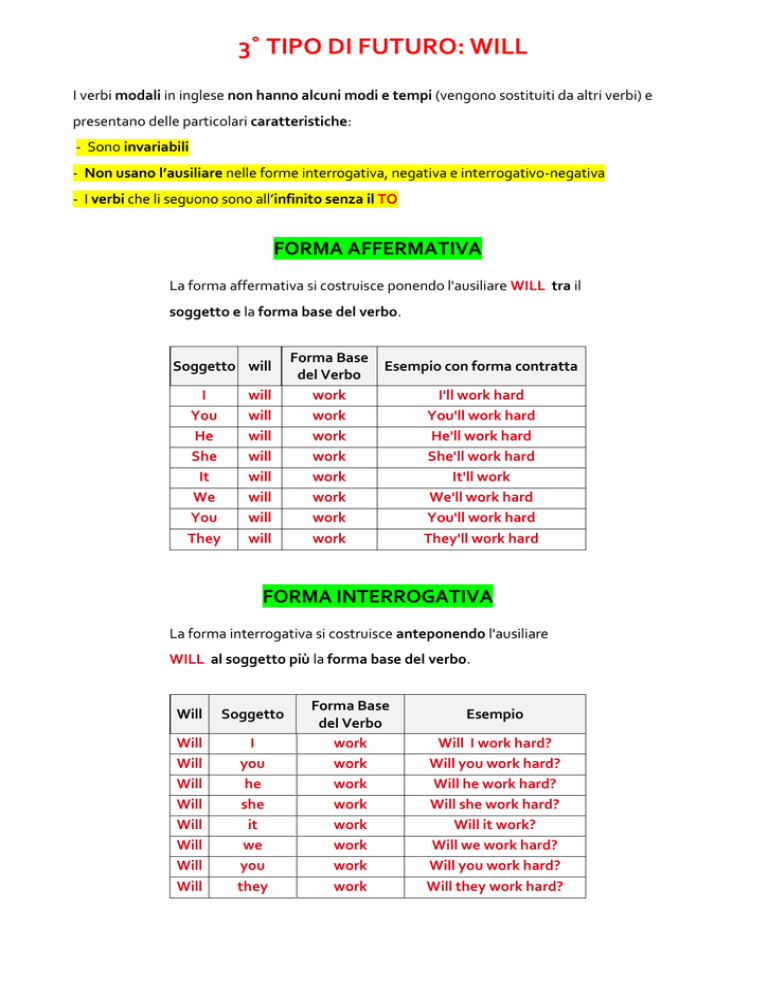
3˚ TIPO DI FUTURO: WILL
I verbi modali in inglese non hanno alcuni modi e tempi (vengono sostituiti da altri verbi) e
presentano delle particolari caratteristiche:
- Sono invariabili
- Non usano l’ausiliare nelle forme interrogativa, negativa e interrogativo-negativa
- I verbi che li seguono sono all’infinito senza il TO
FORMA AFFERMATIVA
La forma affermativa si costruisce ponendo l'ausiliare WILL tra il
soggetto e la forma base del verbo.
Soggetto will
I
You
He
She
It
We
You
They
will
will
will
will
will
will
will
will
Forma Base
del Verbo
work
work
work
work
work
work
work
work
Esempio con forma contratta
I'll work hard
You'll work hard
He'll work hard
She'll work hard
It'll work
We'll work hard
You'll work hard
They'll work hard
FORMA INTERROGATIVA
La forma interrogativa si costruisce anteponendo l'ausiliare
WILL al soggetto più la forma base del verbo.
Will
Soggetto
Will
Will
Will
Will
Will
Will
Will
Will
I
you
he
she
it
we
you
they
Forma Base
del Verbo
work
work
work
work
work
work
work
work
Esempio
Will I work hard?
Will you work hard?
Will he work hard?
Will she work hard?
Will it work?
Will we work hard?
Will you work hard?
Will they work hard?
FORMA NEGATIVA
La forma negativa del Simple Future si ottiene aggiungendo not
all'ausiliare WILL cui segue la forma base del verbo.
Nel linguaggio informale si usa soprattutto la forma contratta
WON'T (WILL + NOT)
Soggetto
I
You
He
She
It
We
You
They
will not /
won't
won't (will
not)
won't (will
not)
won't (will
not)
won't (will
not)
won't (will
not)
won't (will
not)
won't (will
not)
won't (will
not)
Forma
Base
del Verbo
Esempio
work
I won't work hard
work
You won't work hard
work
He won't work hard
work
She won't work hard
work
It won't work
work
We won't work hard
work
You won't work hard
work
They won't work hard
SHORT ANSWERS (RISPOSTE BREVI)
Le Short Answers sono brevi risposte date a domande che prevedono come risposta in genere un
SI' o un NO e sono preferite alle risposte secche (Yes! / No!).
Si formano utilizzando, dopo YES o NO, il soggetto sempre in forma di pronome personale
seguito da WILL/WON'T. Nelle risposte brevi negative si usa solo la forma contratta WON'T.
Eccone degli esempi:
YES/NO QUESTIONS - Domande Sì/No
Will you come back soon? = Tornerai presto?
Will Abby and Ellis come to the party? = Abby e Ellis verranno
alla festa?
Short Answers
Yes, I will
No, I won't
Yes, they will
No, they won't
USO del SIMPLE FUTURE
Situazione
Fare una promessa
Offrirsi spontaneamente di fare qualcosa
Decidere al momento di fare qualcosa, senza
averla programmata precedentemente
Fare previsioni
Indicare qualcosa che certamente avverrà a
prescindere dalla nostra volontà
Con verbi come believe, be sure, suppose,
think
Esempio
I'll call you as soon as I get to the airport. = Ti
chiamo non appena arrivo in aeroporto.
The telephone is ringing: I'll answer! = Sta
squillando il telefono: rispondo io!
I've made up my mind. I'll go to Stockholm for
my vacation. = Ho deciso. Andrò a Stoccolma
per le vacanze.
One day the world will live as one. = Un
giorno il mondo vivrà unito.
Tomorrow I'll be 17. = Domani compio 17
anni.
It's too late. I think he'll miss the train. = E'
troppo tardi. Penso che perderà il treno

